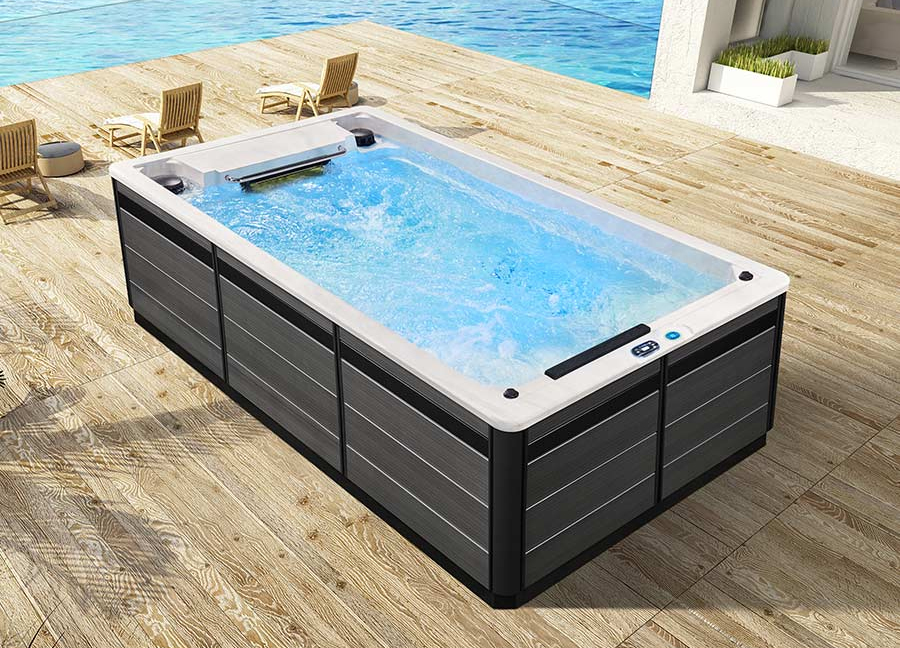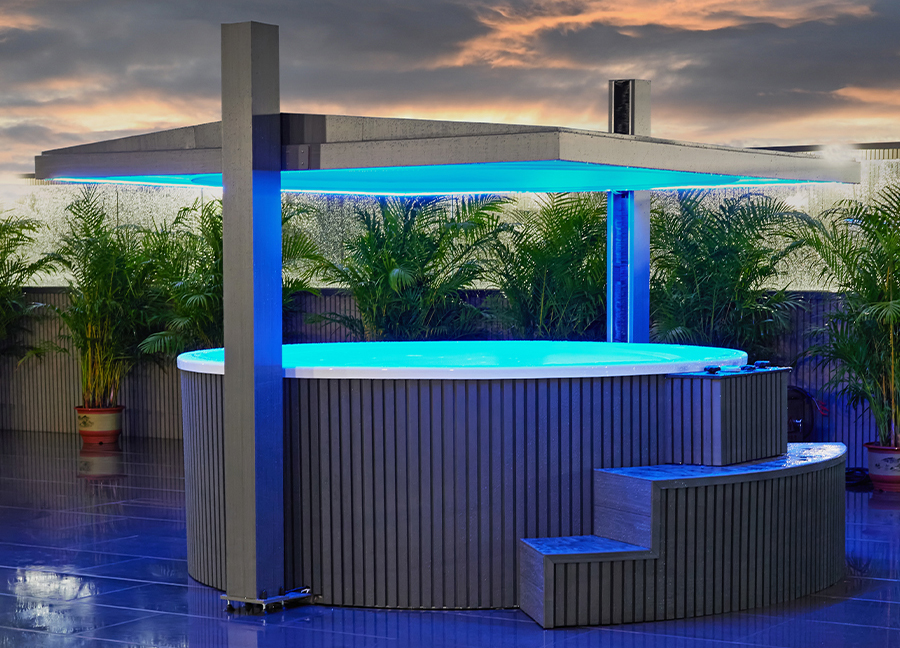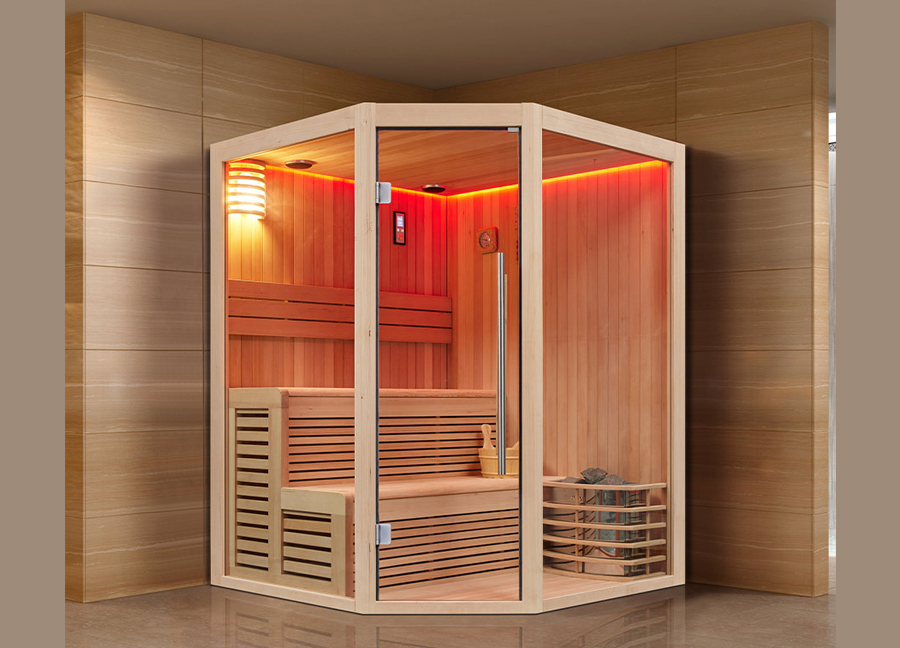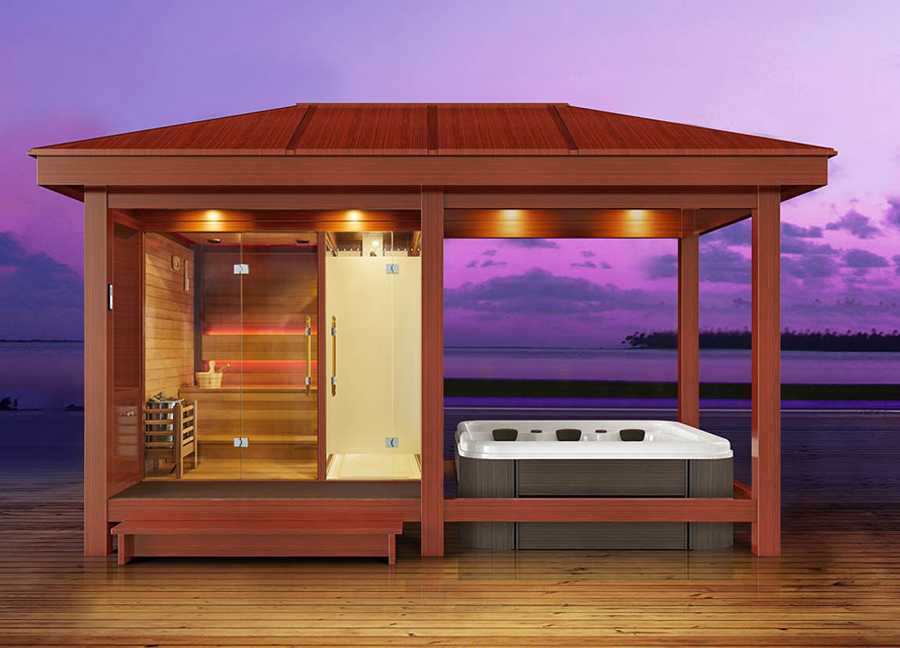The spa jacuzzi bathtub has become a popular choice in many homes and wellness centers due to its unique relaxing properties and comfort. People enjoy the warm water and massage jets to relieve stress, soothe fatigue, and even improve sleep quality.
However, it's not suitable for everyone at all times. For some people, using a spa jacuzzi bathtub improperly can lead to health risks rather than relaxation.
This article will address the core question of "When should you avoid using a spa jacuzzi bathtub?" and analyze common contraindications to help you better understand the precautions.
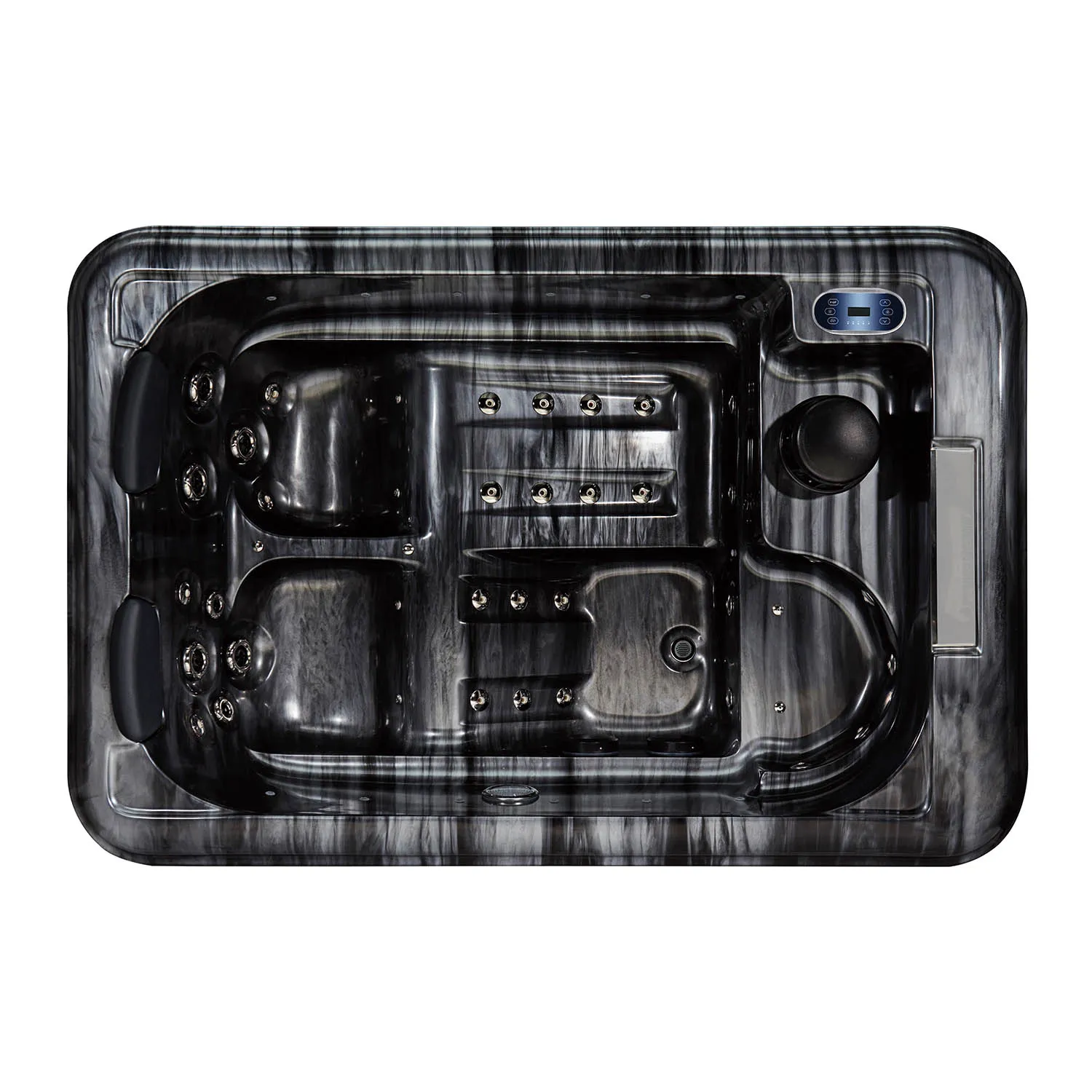
Can you use a spa jacuzzi bathtub when you have a fever?
When your body has a fever, it's already fighting inflammation or infection. If you use a spa jacuzzi bathtub at this time:
• Further increase in body temperature: Hot water can cause your body temperature to rise further, making it difficult to cool down.
• Increased Cardiac and Metabolic Strain: When you have a fever, your body expends a lot of energy fighting viruses or bacteria. Combined with high temperatures, this can easily lead to weakness, dizziness, and even fainting.
• Increased Risk of Dehydration: High temperatures cause sweating to accelerate, leading to greater fluid loss.
The correct approach is to get plenty of rest and hydrate, rather than resorting to hydrotherapy to "sweat away a fever." Therefore, spa jacuzzi bathtubs should be avoided when you have a fever.
Is a spa jacuzzi bathtub suitable for people with heart disease?
For people with heart disease, spa jacuzzi bathtubs may pose potential risks.
• Hot water dilates blood vessels: This can cause a sudden drop in blood pressure, leading to dizziness or even fainting.
• Increased Heart Rate: High temperatures force the heart to beat faster to maintain body temperature, but this increases the workload on the heart.
• Risk of Arrhythmia: Some people are more susceptible to heart arrhythmias and other problems in high temperatures.
Therefore, people with heart disease should avoid spa jacuzzi bathtubs unless they have their doctor's explicit permission. Even if permitted, water temperature (generally no more than 37–38°C) and soaking time must be strictly controlled.
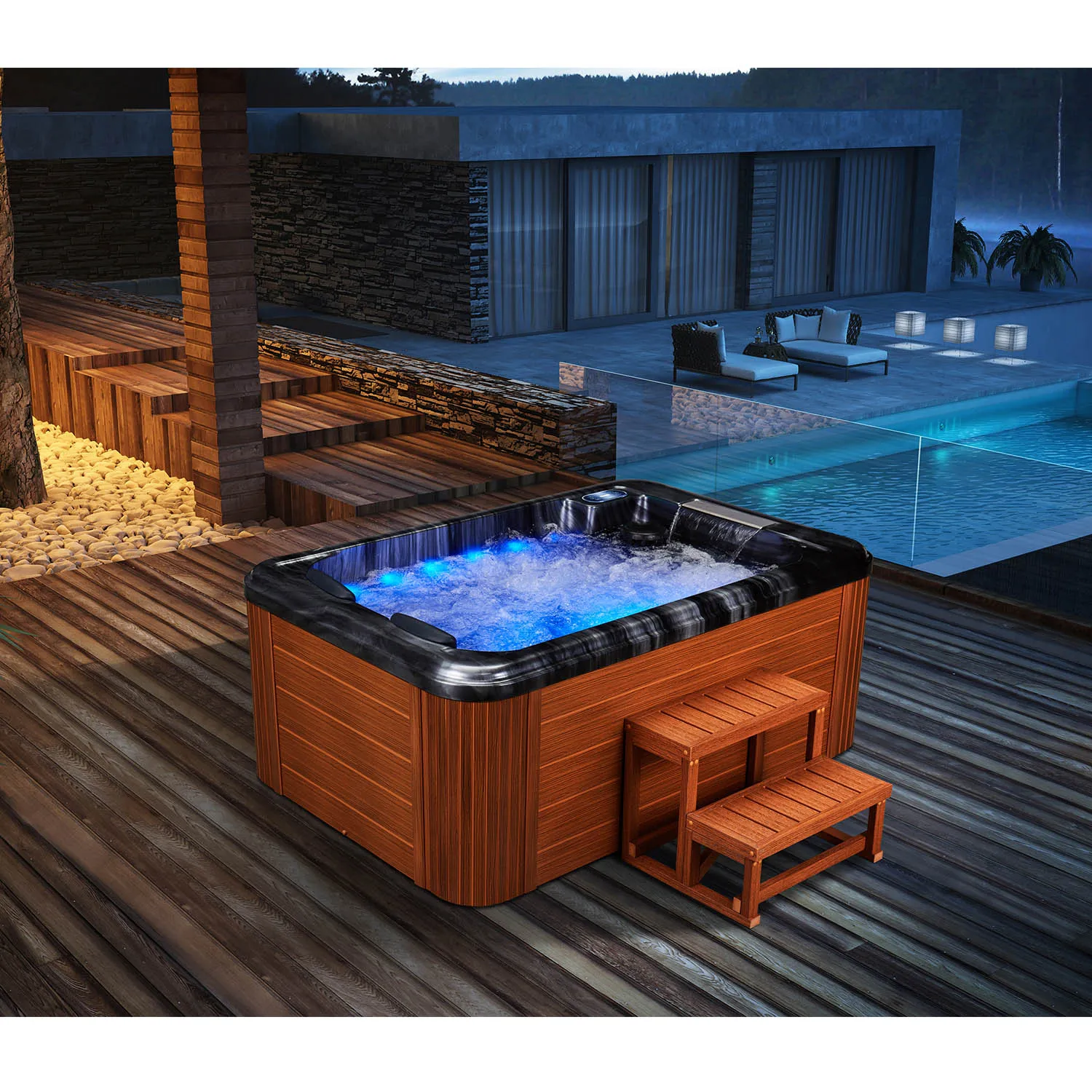
Can I use a spa jacuzzi bathtub during pregnancy?
While there is controversy surrounding the use of spa jacuzzi bathtubs by pregnant women, most health experts advise caution.
• Increased core body temperature: Prolonged exposure to high temperatures during pregnancy may cause neural tube abnormalities in the fetus.
• Circulatory system burden: Pregnancy increases blood volume, making hypotension and fainting more likely, and the risk is heightened in high temperatures.
• Particularly important to avoid during the first trimester: The first trimester is a critical period for fetal nervous system development, and it is not advisable to increase the mother's body temperature too high.
Therefore, spa jacuzzi bathtubs should be avoided during pregnancy, especially during the first trimester. If necessary during the second and third trimesters, the duration should be shortened, the water temperature should be lowered, and the use should be done with a partner or family member.
Can I use a spa jacuzzi bathtub after drinking alcohol?
Using a spa jacuzzi bathtub after drinking alcohol is extremely dangerous.
• Alcohol dilates blood vessels: This combined effect with hot water can cause a rapid drop in blood pressure.
• Reduced reflexes: Alcohol impairs the brain's ability to judge, and if you feel uncomfortable in the water, you may not be able to react quickly enough.
• Increased risk of drowning: People who are intoxicated are extremely dangerous in water, even in shallow water.
Therefore, you should never use a spa jacuzzi after drinking alcohol. Even if you have only a small amount, you should be completely sober before using one.
Can people with skin conditions use a spa jacuzzi?
Skin health directly affects whether you can use a spa jacuzzi.
• Open wounds: Hot water and massage jets can irritate wounds, causing pain or secondary infection.
• Fungal or bacterial infections: For example, athlete's foot or skin ulcers, these conditions are often aggravated by hot and humid conditions.
• Sensitive skin: Some people may be allergic to disinfectants in water (such as chlorine or bromine), causing redness and itching.
Therefore, if you have skin abnormalities, you should avoid using a spa jacuzzi bathtub to avoid exacerbating the problem.
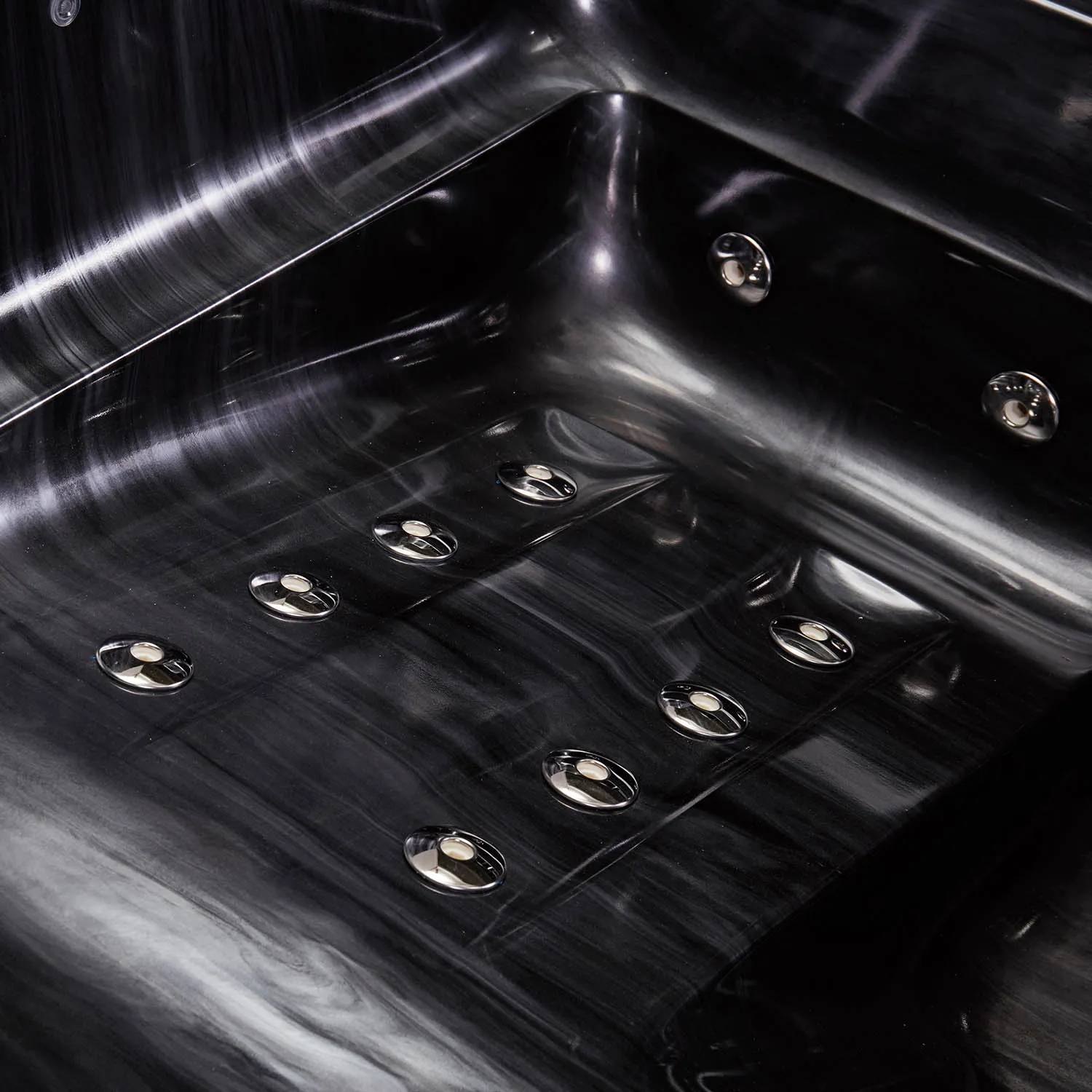
Is a spa jacuzzi bathtub suitable for people with high blood pressure?
People with high blood pressure face certain risks when using a spa jacuzzi bathtub:
• Blood pressure fluctuations: Hot water dilates blood vessels, causing a sudden drop in blood pressure and potentially causing dizziness when standing.
• Medication interactions: Some antihypertensive medications are more effective in high temperatures, potentially leading to hypotension.
• Cardiovascular stress: People with high blood pressure are more susceptible to sudden events such as stroke or heart problems.
Therefore, people with high blood pressure should consult a doctor before using a spa jacuzzi bathtub and avoid prolonged, high-temperature soaks.
Can children use a spa jacuzzi bathtub?
Whether children should use a spa jacuzzi bathtub should be considered from both a safety and physiological perspective.
• Poor temperature regulation: Children have a high metabolism but a poor ability to regulate their body temperature, making them more susceptible to dehydration or heatstroke due to high temperatures.
• Lack of safety awareness: Children have limited self-protection abilities in water and are at risk of drowning if not properly cared for.
• Delicate skin: Children's skin is more susceptible to irritation from chemicals.
Therefore, spa jacuzzi bathtubs are not suitable for young children. If older children wish to use them, they must be supervised by an adult at all times, and the duration and water temperature must be strictly controlled.
What are the consequences of using a spa jacuzzi bathtub for too long?
Even for healthy adults, prolonged use of a spa jacuzzi bathtub can have adverse effects.
• Dehydration: Prolonged soaking in hot water can cause excessive sweating, and if not hydrated, this can lead to symptoms of dehydration.
• Skin problems: Prolonged exposure to hot water and chemical disinfectants can cause dryness and itching of the skin.
• Abnormal circulation: Prolonged soaking can cause poor circulation, leading to dizziness or palpitations.
It is generally recommended to soak for 15–30 minutes at a time. Avoid staying in a spa jacuzzi bathtub for extended periods.
Why should you avoid using a spa jacuzzi when you have a cold or are feeling weak?
Many people mistakenly believe that soaking in a spa jacuzzi when you have a cold can help you sweat out the cold, but this actually does more harm than good.
• Excessive physical exertion: When you have a cold, your immune system is weakened, and high temperatures can only make you more exhausted.
• Stress on the respiratory system: Colds are often accompanied by nasal congestion and difficulty breathing, and hot steam can make breathing even more difficult.
• Risk of cross-infection: Sharing a bathtub with multiple people can also spread viruses.
Therefore, it's best to avoid using a spa jacuzzi when you have a cold or are feeling weak.
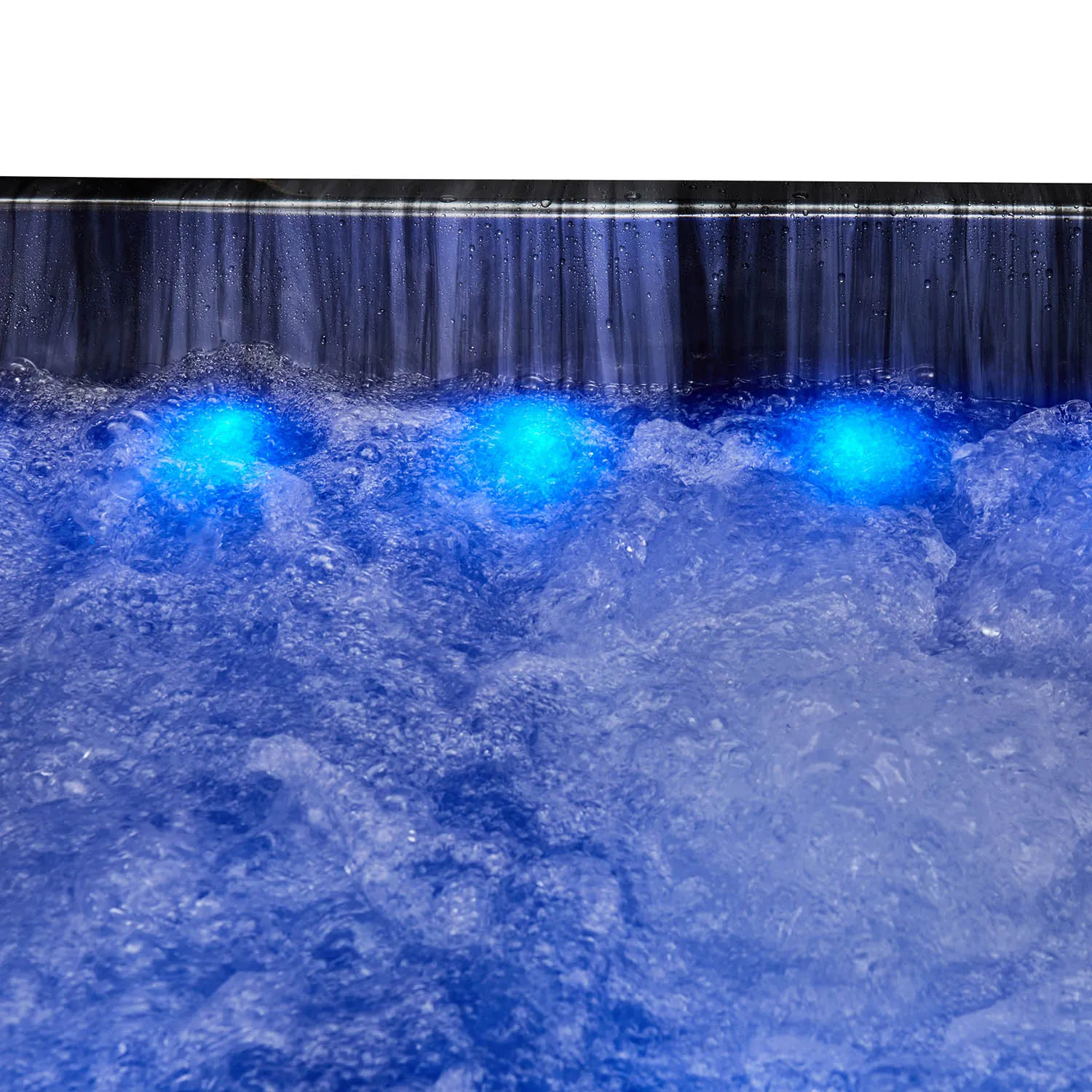
Is a spa jacuzzi suitable for the elderly?
Older adults enjoy the warm water environment of a spa, but caution is advised when using a spa jacuzzi.
• Fluctuations in blood pressure and blood sugar: Elderly individuals often have chronic health conditions, and high temperatures can cause dizziness or even fainting.
• Lack of joint flexibility: Entering and exiting a spa jacuzzi can easily lead to slips and falls.
• More fragile skin: Elderly people have a weakened skin barrier and are easily irritated by hot water or disinfectants.
Therefore, elderly people should use spa jacuzzi bathtubs with the company of a family member, for short periods of time, and at a moderate water temperature.
When should you avoid using a spa jacuzzi bathtub?
Based on the above analysis, it is clear that the following situations should be avoided:
1. If you have a fever or cold
2. If you have heart disease or high blood pressure without a doctor's permission
3. If you are pregnant
4. If you have consumed alcohol or taken medications that affect blood pressure
5. If you have open wounds or skin conditions
6. If you are with young children or are unattended
7. If you are in an excessively hot environment for a long time
8. If you are using a spa jacuzzi bathtub alone
A spa jacuzzi bathtub is an ideal way to relax, but it is not always safe. The correct approach is to consider your health status, manage the water temperature and duration appropriately, and consult a doctor if necessary.
Can Yuehua handle both small and large purchasing orders?
Yes. Our factory in China is flexible enough to manage both small batch production and large wholesale orders. Small retailers can buy at promotional discounts during seasonal sales, while large distributors benefit from low price bulk purchasing.
Regardless of order size, Yuehua guarantees high quality spas, saunas, and bathtubs. With over 40,000㎡ of production space and advanced machines, we ensure fast delivery and consistent quality.

